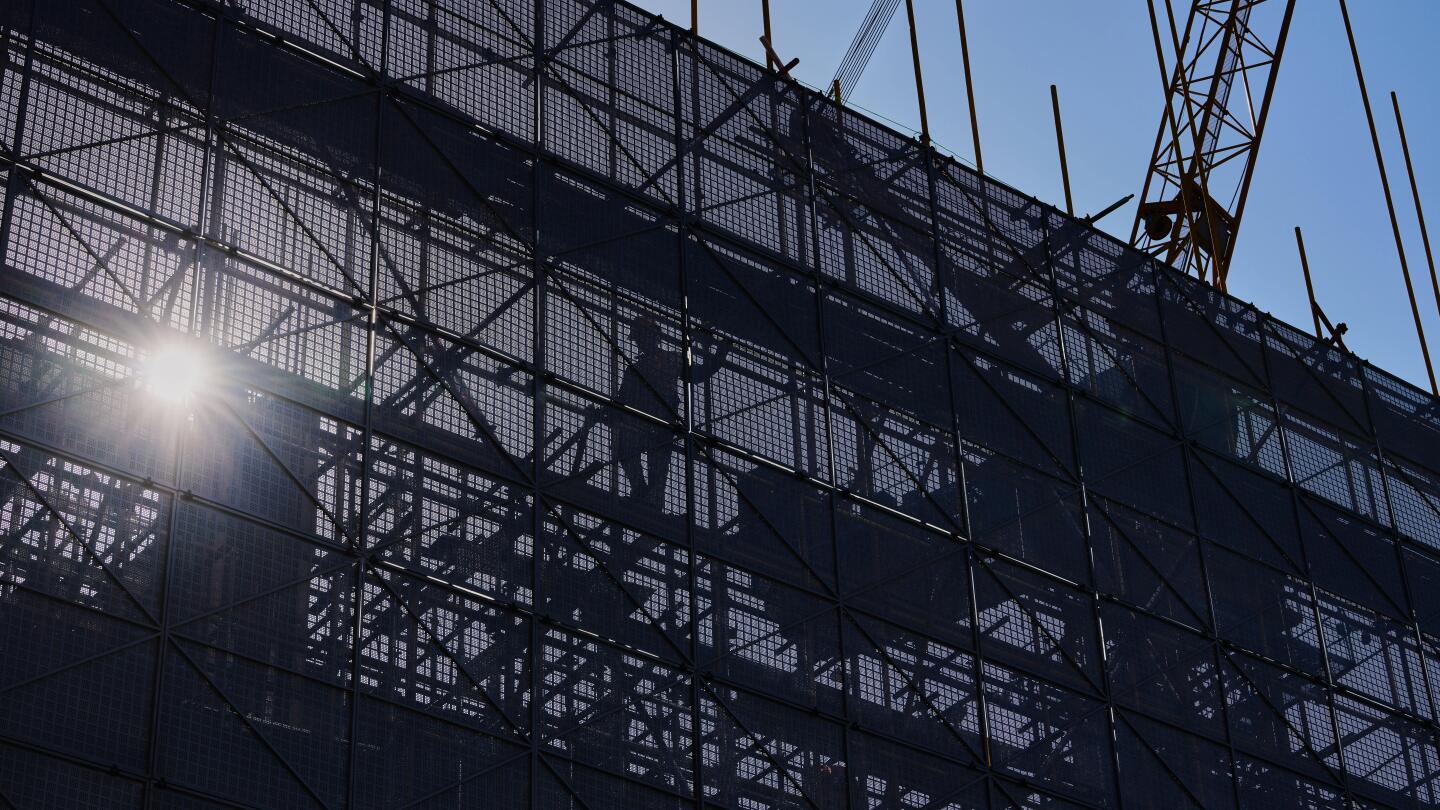BEIJING (AP) — China’s ruling Communist Party said Thursday it will focus on speeding up self-reliance in science and technology, a long-running push that has become more pronounced as the U.S. has imposed increasingly tight controls on access to semiconductors and other high-tech items.
The announcement by state media came in a communique after a four-day meeting that approved a draft of the party’s next five-year development plan.
China faces “profound and complex” changes and rising uncertainty, it said. The communique did not directly mention the trade war with U.S. President Donald Trump. China’s leader Xi Jinping is expected to meet Trump for talks in South Korea next week.
Since returning to the White House, Trump has ramped up tariffs on imports in an effort to compel manufacturers to shift factories to the United States. That has added to pressure on the Chinese economy at a time when the leadership is struggling to resolve a prolonged downturn in the property market and stoke stronger domestic demand.
But China has managed to keep exports growing by shifting to other markets, and the statement signaled the government is confident it can counter external threats with domestic policy tools, said Gary Ng, a senior economist at Natixis, a French investment bank.
“It means China will likely demand more from the U.S. to reach a deal, if one is to be reached,” he said.
The communique contained few surprises, largely echoing the policy direction set out by Chinese leader Xi Jinping, who wants to build China into a tech leader and global power with a robust military able to command respect and exert international influence.
It provided only a broad overview of the coming 2026-2030 five-year plan, indicating its scope without details. More information may be released in the coming days, but the full plan won’t be known until March, when the legislature gives a rubber-stamp approval to the plan at its annual meeting.
“The general impression of the communique is that it highlights much more continuity than change,” said Xin Sun, a senior lecturer in Chinese and East Asian Business at King’s College London.
Ng said that compared to the previous plan five years ago, the government is deepening its push for technological self-sufficiency, income redistribution and a transition to clean energy.
The country’s industrial policy has driven the rapid development of the electric car and wind and solar industries in recent years and has turned now to robotics and artificial intelligence.
The party will “accelerate the all-out green transformation of economic and social development,” the statement said.
It said that China would continue to boost domestic demand and spending, an objective that economists said is important for the country’s economic growth, though it didn’t signal any significant change to that approach.
China has rolled out various policies to help increase consumption — such as subsidies for consumer loans and child care and trade-in programs for electric vehicles and appliances. Economists are watching for more measures to support consumption by the year’s end.
Beijing said this week it is still on a “solid foundation” to achieve its full-year official growth target of around 5%, after China’s economy grew 4.8% in the July to September quarter.
The meeting of the party’s Central Committee was notable for the low number of deputies, an indication of Xi’s deep purges among the Communist Party’s top ranks. Out of 205 members, 168 attended the meeting, the communique said, along with 147 out of 171 alternates. Eleven alternates were made voting members to fill vacancies on the committee.
The party meeting chose a replacement for China’s second-highest-ranking general. He was expelled from the party along with eight other senior military officials on suspicion of corruption, the Defense Ministry announced just days before this week’s meeting.
Zhang Shengmin was named vice chair of the Central Military Commission, the top military body. He was already a member of the commission and holds the rank of general in the People’s Liberation Army’s Rocket Force. He is secretary of the commission’s Discipline and Inspection Commission, which investigates corruption.
The elevation of Zhang shows an emphasis on political loyalty and anti-corruption as Xi continues a push to modernize China’s military, Sun said.
___
Wu reported from Bangkok and Chan reported from Hong Kong. Associated Press researchers Yu Bing and Shihuan Chen in Beijing contributed.

